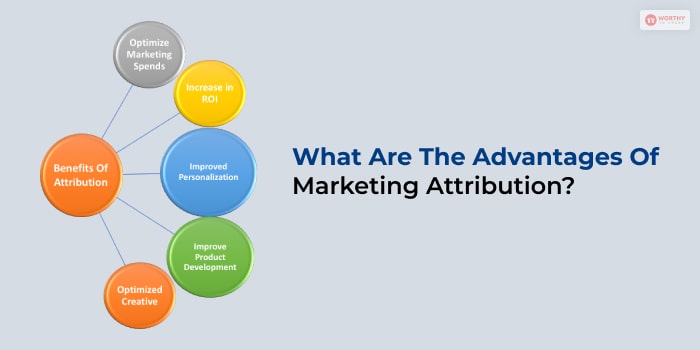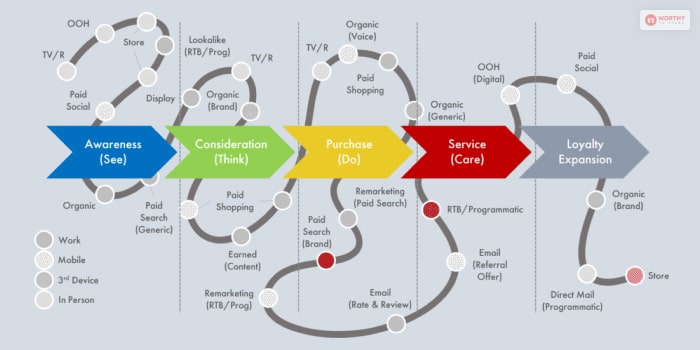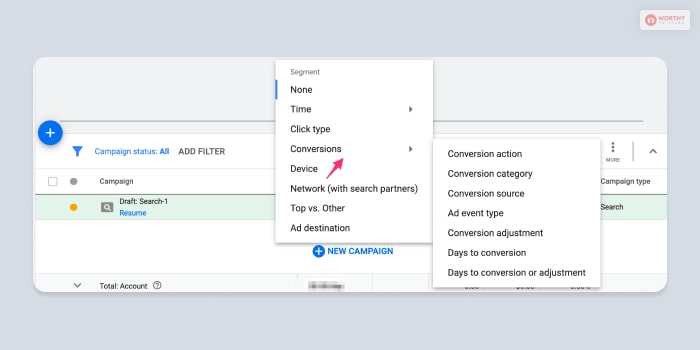When a customer buys a product, a wide range of thoughts and considerations go through their minds. If you want to be a skilled marketer, then you can successfully target these points to market your products better. Doing so will make it easier to make your product attractive and even make higher sales as well. This is why marketers should learn what marketing attribution is.
Learn more about this concept by reading this post till the end.
Why Is Marketing Attribution Important?
There are several reasons why marketing attribution tools are important.
1. Analyze Customer Buying Behavior
By analyzing the buying behavior of the customer, you can understand several key points about them. These points or attributes will help you better understand what influences customers to buy your products. However, this will only be in relation to your marketing strategy. Making better products is not a marketing attribution. On the other hand, creating better advertising campaigns definitely is.
2. Improve Current Marketing Strategies
Since you have understood the marketing attributes that convert most people into customers, it’s time to implement them. Therefore, these attributes will help you make your marketing campaign better. Whether it’s making more ads for digital platforms or making the product’s packaging better – its aim will be to attract more customers and gain higher sales.
What Are The Advantages Of Marketing Attribution?

Understanding B2B marketing attribution software will provide lots of benefits to your business. Some of the primary benefits are:
1. Lesser Spending On Marketing
Analyzing customer behavior and understanding marketing attributes will improve your marketing campaigns. Therefore, you can make it a lot better by weeding out unnecessary indulgences and focusing on the main points. This will streamline your marketing strategy and make it more cost-effective as well.
2. Higher ROI
One of the main prospects of marketing attribution that draws in a lot of marketers is its returns on investment (ROI). If you can use attribution in the most effective manner possible, you will automatically draw in customers and make more sales as a result. This will automatically increase your ROI significantly.
3. Better Development Of Products
While research and development to create products is not a core marketing concept, it ties into marketing attribution reporting neatly. This is because if you know what attributes customers want in your products, you can improve the features and designs of your products and services accordingly. Better products that are more in tune with customer expectations also mean higher sales and better revenues!
What Are The Disadvantages Of Marketing Attribution?
The primary advantages of using marketing attribution platforms are:
1. Bias Towards Cheaper Inventory
Due to the natural conversion rate for the targeted customers, which makes lower-cost media appear to perform better than higher-cost media, even if this may not be the case, an erroneous picture of how the media is doing is provided.
Each prejudice poses the risk of forcing marketers to make adjustments in favor of a message that is less effective, severely harming ROI.
2. No Message Signals
Consumers place equal value on creativity and messaging as they do on the platform on which they saw your advertisement. One typical attribution error is to assess creativity as a whole and declare one message worthless when, in fact, it might be effective for a more narrowly focused audience. This underlines how crucial person-level analytics are.
3. Brand Behavior
Marketing Attribution models frequently ignore or only consider the link between brand perception and customer behavior at the level of trend regression.
Marketers need to make sure their attribution models can identify connections between brand development activities and conversions. A frequent and harmful error that causes marketers to base their decisions on inaccurate advice that minimizes the value of brand creation is failing to comprehend how their attribution model gauges branding effect.
How Can We Track Conversions From Ad Exchange Campaigns?
You must define your conversion, set up the necessary tracking tag, and select an attribution model to monitor conversions in Google Ads.
Conversions are any significant actions that viewers of your advertisement do as a result of seeing it. Every firm will have a distinct definition of what constitutes a conversion. For instance, interactions on live chat, phone calls to your company, click on particular sites, viewings of videos, form submissions, and more might all be categorized as conversion activities.
Marketing Attribution Models
The various marketing attribution models that you can make use of are:
Single Touch
This refers to two different types of attribution:
- First-Touch Attribution: This attribution model makes the assumption that the buyer made their decision to buy after seeing the first advertisement. Therefore, it grants full credit to this initial touchpoint, regardless of any later communications.
- Last-Touch Attribution: This attribution model ignores past engagements. Instead, it focuses on assigning all attribution credit to the final interaction the customer made before completing the purchase.
Multi-Touch
This refers to four different types of attribution:
- Linear Attribution: Each customer touchpoint that led to a sale is tracked using linear attribution. Each of these encounters is given the same weight, and each message is given the same percentage of the credit for generating the conversion.
- U-Shaped Attribution: This attribution model assesses engagements independently as opposed to linear attribution, emphasizing that certain interactions have a greater influence than others on the route to purchase. More specifically, the lead is attributed 40% to the initial touch and 40% to the lead conversion touch. Between the initial touch and the final conversion touch, there are further touchpoints that each receive 20% of the total.
- Time Decay Attribution: This model also gives each touchpoint on the way to a purchase a varying amount of weight. This approach assumes that the touchpoints that were used closer to the conversion had a bigger influence on the sale than those that were used earlier.
- W-Shaped Attribution: Similar in concept to the U-Shaped model, this model adds a stage for opportunities as a second core touchpoint. As a result, the touchpoints responsible for the initial contact, lead conversion, and generating opportunities are each given 30% of the credit for the W-Shaped model. The other engagements each receive a portion of the final 10%.
Frequently Asked Questions (FAQ):
Here are the answers to some queries related to marketing attribution in digital marketing:
Ans. Some of the different types of attribution models are:
• Interactive Attribution Models
• Linear Attribution Model
• Position-Based attribution
• Time-Based Attribution
Q2. Which Is The Best Marketing Attribution Model?
Ans. According to most marketing experts, all attribution models are equally important. This is because all attribution models provide us with reports on different customer touchpoints leading up to a conversion.
Conclusion
Marketing attribution is the study of the marketing and buying process for customers. Here, you can analyze all the various channels and mediums that customers indulge in before purchasing your product. Therefore, you can simply fine-tune these attributes to make conversion easier and gain a higher ROI as well.
Read Also:




















